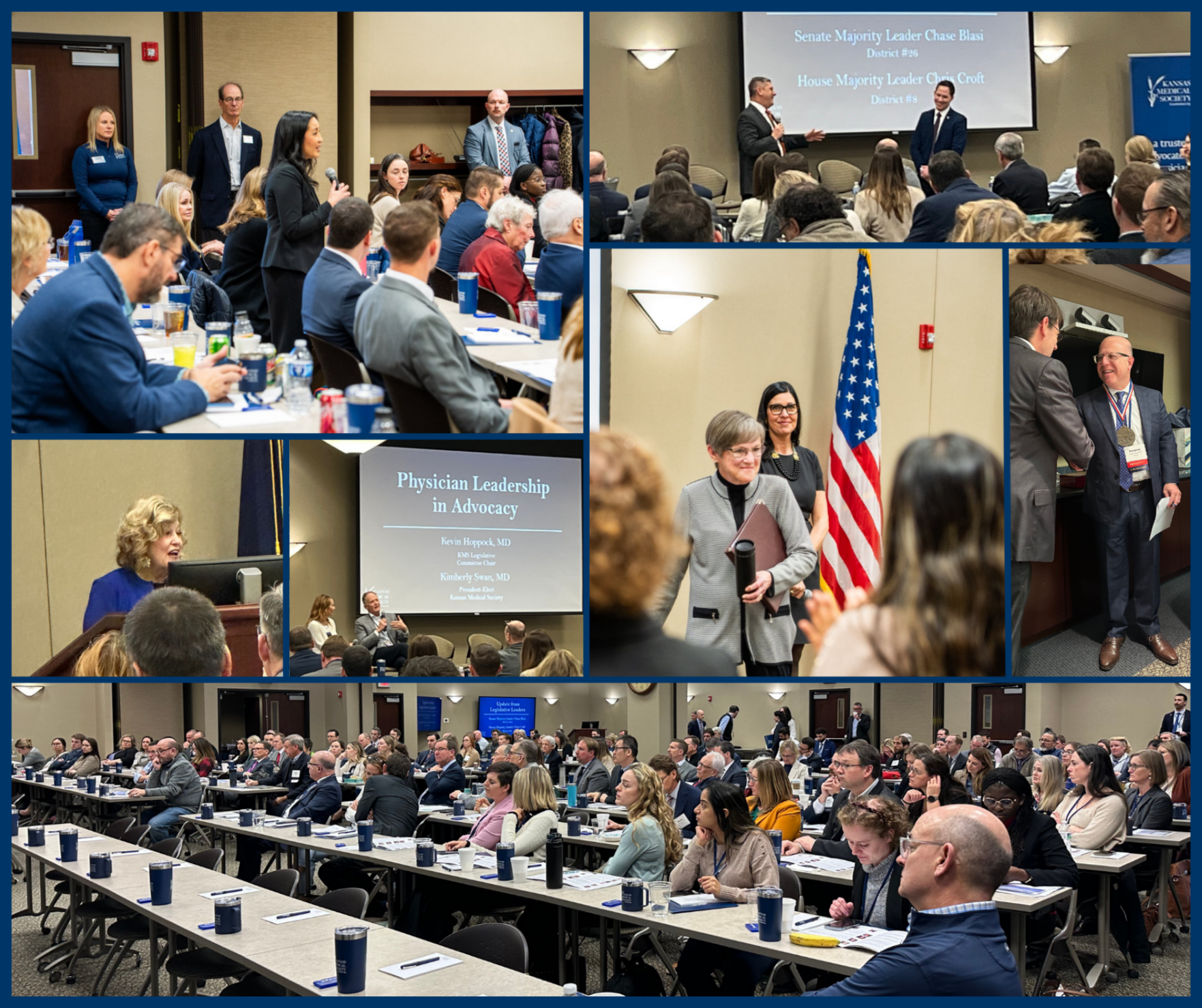Welcome to Kansas Medical Society
2026 Advocacy Day
Another successful Advocacy Day and Physician Day Legislative Luncheon comes to a close. This past Wednesday, physicians from across Kansas and our legislative leaders gathered to discuss the issues impacting physicians across the house of medicine.
We were honored to hear from Governor Laura Kelly, Insurance Commissioner Vicki Schmidt, and House and Senate Majority and Minority leadership, who provided valuable insight into how the Legislature is working to support physicians and what issues lie ahead in the upcoming legislative session.
We are grateful to our speakers and to everyone who attended for their continued commitment to advocacy on behalf of Kansas physicians. Your participation strengthens our collective voice, and we look forward to welcoming new and returning faces at Advocacy Day next year!










